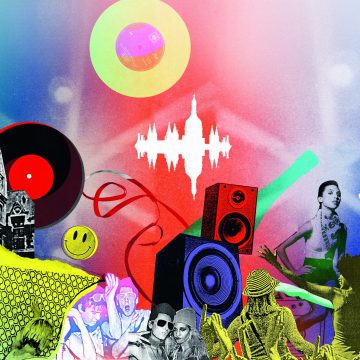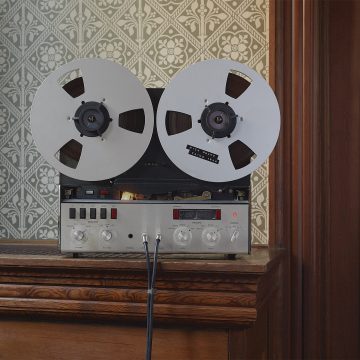Encore! Why performance is good for you – even if you’re not good at it
National opera. West End show. An appearance on Jools Holland’s Later. Or down the pub on karaoke night. Wherever you do it, performance is proven to have benefits that last long after the final chord has rung out.

So your recorder is squeaky and your bowing is scratchy and maybe you can’t hold a harmony – or even a tune. No matter! Humans need music. You need music. And that need for music – and performance – can be traced back to the very earliest human societies.
Yet it’s easy to lose sight of our inherent musicality when society tends to exalt musical talent and expertise. “We’ve got this aestheticised notion of what music should be,” says Ian Cross, Emeritus Professor of Music and Science and Emeritus Fellow of Wolfson College. “That it’s got to be beautiful.” In fact, he argues, that’s not the case at all. “Music is for wellbeing. That’s what it is. It’s got to be fun. Beauty is something that just falls out of it having been fun.”
Or rather, it can do. There are plenty of examples of musical performance that we might hesitate to call beautiful, but which undoubtedly foster a sense of wellbeing in their participants. Take crowds singing along at a football match, or a rendition of Happy Birthday at a child’s party: “It’s not the sort of thing you’d actually want to listen to, but it’s definitely music,” says Cross.
The social aspect of performance is something that anyone taking part in group music-making feels instinctively, but it’s a phenomenon for which there are also increasing amounts of hard data
Because what matters isn’t only the quality of the sound; it’s also the social interaction that goes into creating it. The social aspect of performance is something that anyone taking part in group music-making feels instinctively, but it’s a phenomenon for which there are also increasing amounts of hard data. Numerous studies demonstrate that making music with other people makes you feel better about both those particular individuals and people in general, says Cross. Music making is an empathy booster.

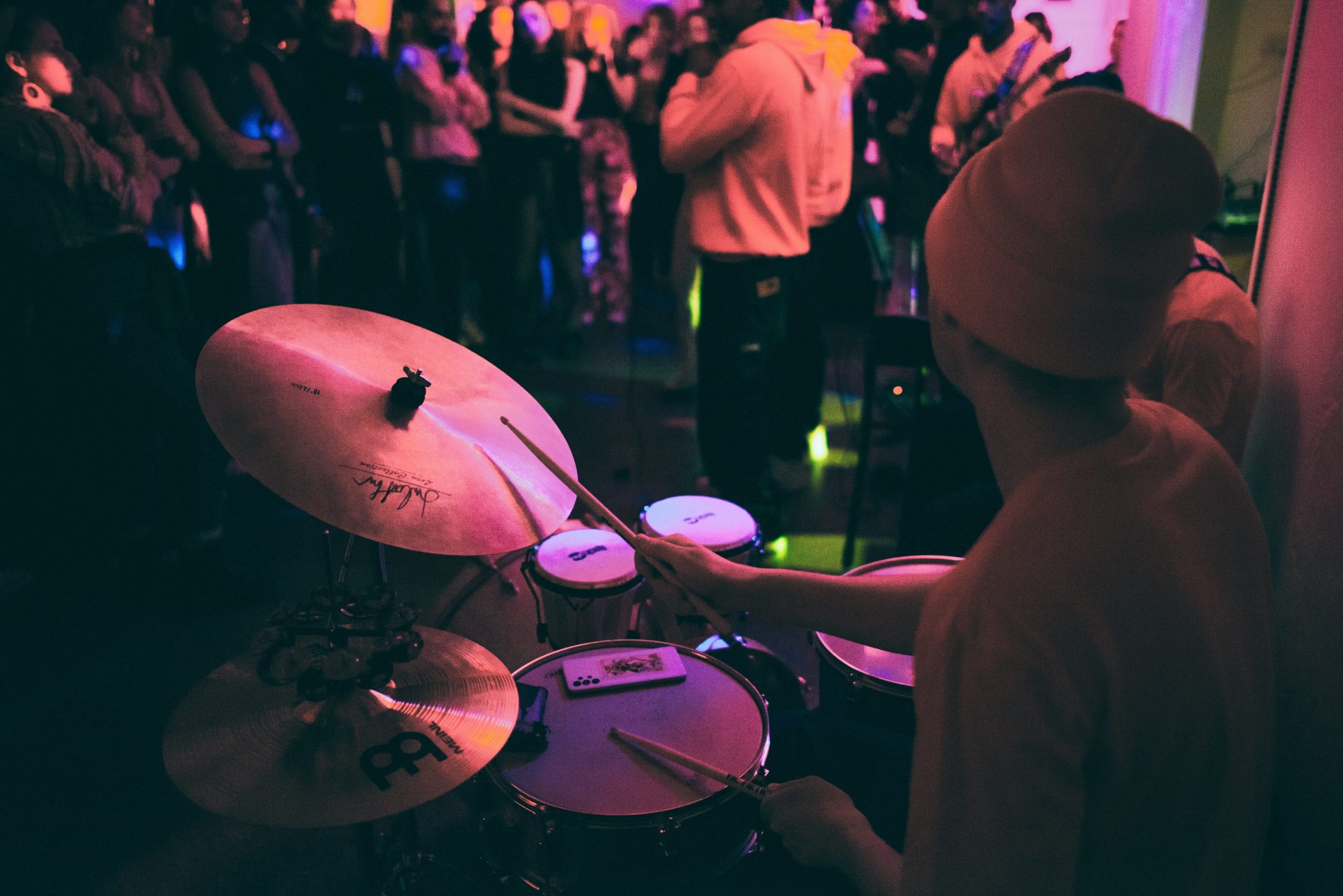
Quasar’s final Hip Hop After Dark of the year, held in the Cambridge Union Cellars, was a night of laughs, lyrics and live music.
“The night really showed me the importance of having spaces which encourage the expression of creativity.” Vincent Mastin
Cambridge University Hip Hop Society: Vocals; Vincent Mastin, Reece D’Souza, Eliza Pepper; Guitar, Felix Asare; Drums, Wynn Tasker; Bass, Gabriel Duval; Keys, Freeman Lok.
He gives the example of a study where strangers were paired up and given one of two tasks to do together: making some rudimentary music or building a tower out of blocks. The way they interacted with each other, including unconscious mirroring movements of their bodies, was analysed before and after the task, with striking results. “We found that, after making music together, people tended to behave a bit more like friends,” says Cross, “since when you’re making music together, you’re in time with each other. That does two things: it guarantees that someone is cooperating or is prepared to cooperate. It’s also an indication that they’re like you. So, you get this experience of someone behaving as you behave and showing signs that they’re happy to cooperate with you. That’s a pretty good reason for liking them.”

This keys into the origins of music itself, says Dr Peter Harrison, University Assistant Professor in the Faculty of Music and Director of the Centre for Music and Science. “Music has strong pro-social effects,” he says. “Potentially one of the reasons why music evolved in the way it did was to foster social relationships between people, to keep communities well-bonded and happy.”
And music is particularly effective for this type of group bonding because it works at a scale beyond that of individual encounters. “Music-making allows you to develop these positive relationships with many people at the same time,” says Harrison, “whereas you can only talk to one or two people at once.”
That’s certainly been the experience of flautist Lottie Anstee (Churchill 2019) who, as well as reading Music, threw herself into all manner of extracurricular performance opportunities during her time at Cambridge. “Music is a great way to build communities of people,” she says. “Just being able to play together creates a sense of bonding, even without getting to know them. I love solo performance, but it never had the same feeling as being able to play with a massive group of like-minded people.”
Performing offers other benefits too, says Anstee, who this autumn began a Master’s degree in Psychology at Goldsmiths, University of London, specialising in the psychology of music. “There are so many skills that music enhances. One of the biggest ones for me has been confidence: I’ve definitely felt that throughout my time at Cambridge, constantly putting myself out there and being able to build on that.”
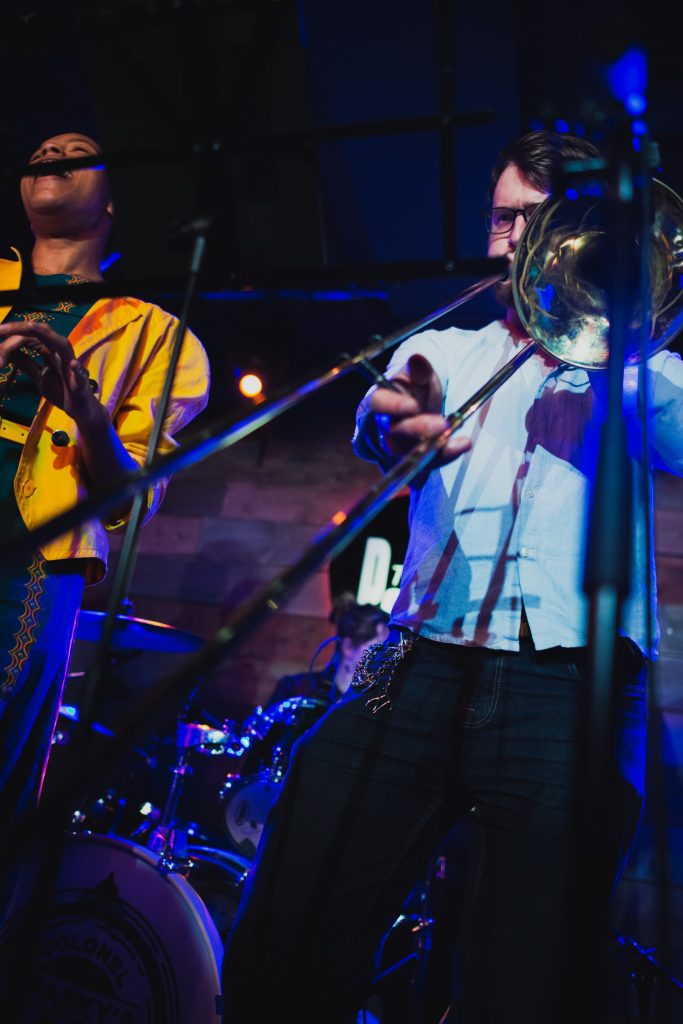
It’s these sorts of skills – confidence included – that the University hopes to foster through the work of the new Centre for Music Performance (CMP), which formally launched this academic year. “You develop really wonderful, world-class technical skills in whatever academic discipline you follow as a student at Cambridge,” says Simon Fairclough, Director of the CMP. “But actually, in order to maximise your contribution to society or in the workplace there are other skills that are needed as well: social skills; the ability to work with other people; and the ability to appear confident, even if you might be bricking it slightly. And so many of those skills can be developed through the act of taking part in musical activity.”
It’s about mental health too. “There is a really important preventative role for activities like music in puncturing the stress bubble that can very easily develop for young people going through a hothouse environment like Cambridge,” says Fairclough. “If you’re singing, for example, you’re filling your lungs with air, thinking about your posture and re-engaging with your physical body rather than your brain – as well as using a different part of your brain.”
There is a really important preventative role for activities like music in puncturing the stress bubble that can very easily develop for young people going through a hothouse environment like Cambridge
Cambridge, of course, is renowned worldwide for its musical output, including the University’s centuries-old choral tradition, what Fairclough calls “the crowning glory of music at Cambridge as it exists today”. The CMP will play a vital role in maintaining and enhancing opportunities for the University’s most able young musicians, but it also seeks to create a range of new performance opportunities, across different genres and ability levels. Building on the concept that music transcends words – developing students’ teamwork, resilience, empathy and emotional intelligence – the Centre hopes to inspire generations of future students to perform, and experience music as a core part of what it means to be at Cambridge and life beyond.
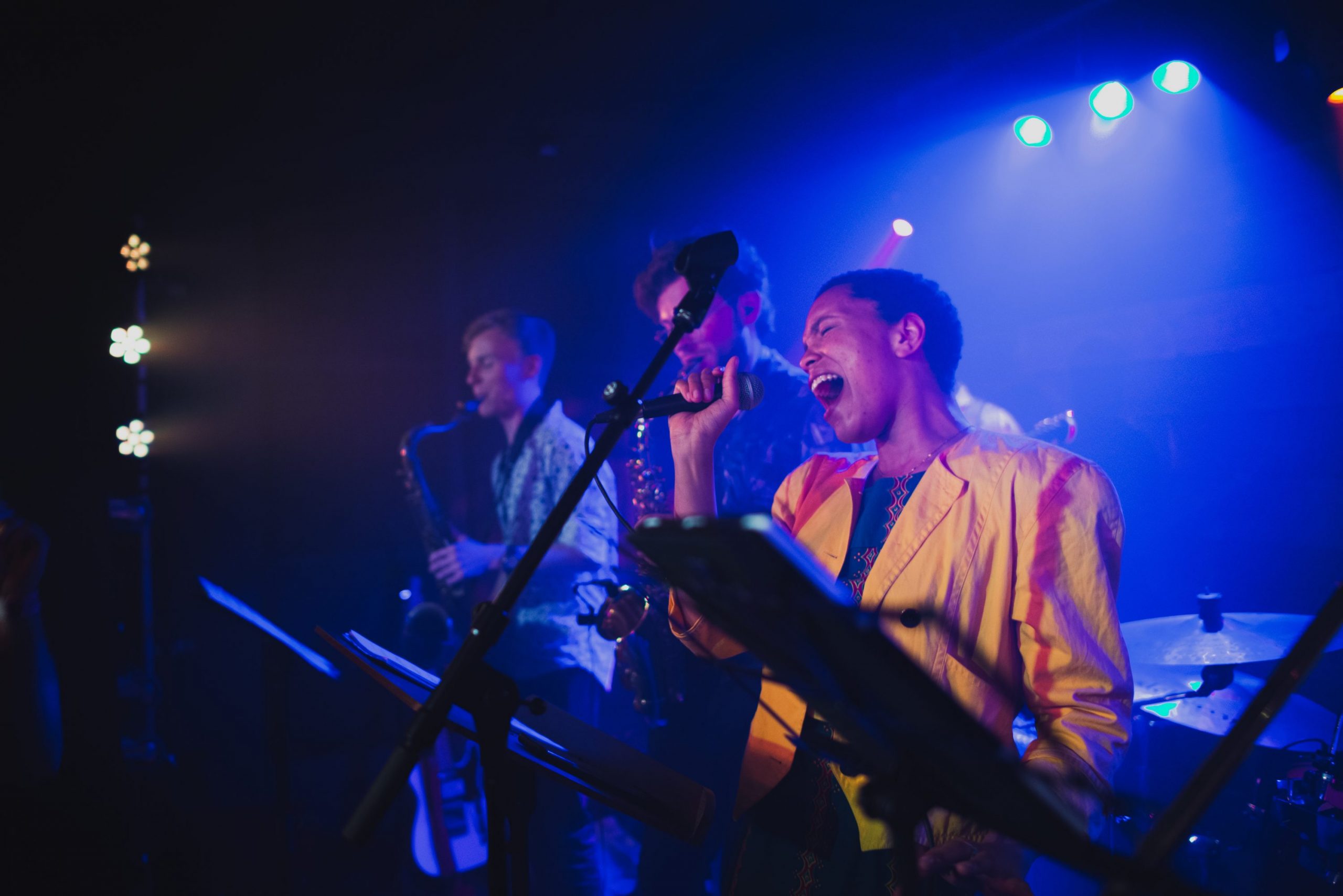
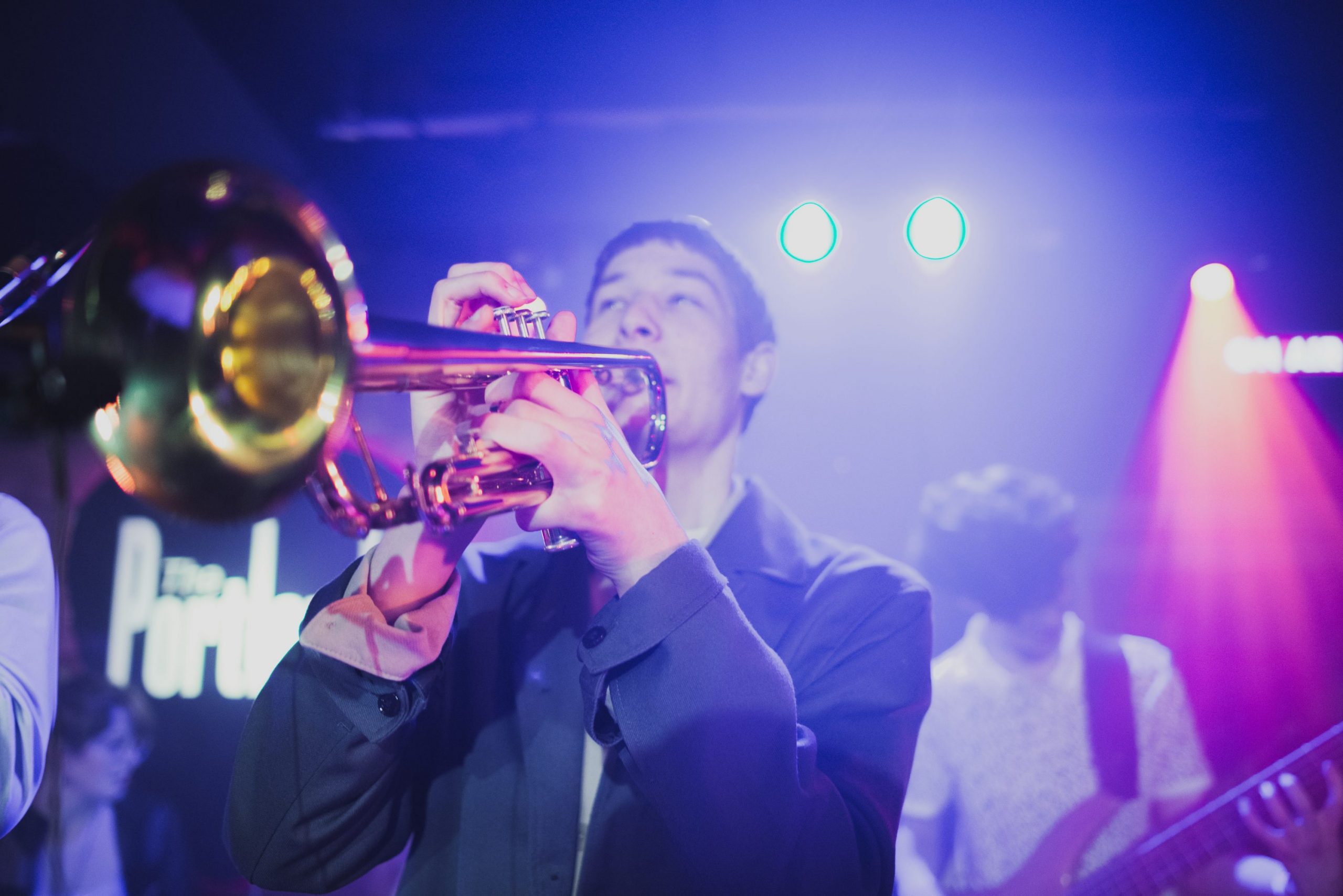
The Varsity event featured two Cambridge bands in a ‘funk off’ with Oxford University’s Green Bean Machine.
“The atmosphere was vibrant and electric; one of those occasions where everyone in the crowd had just as much fun as everyone on stage.” Rachel Oyawale
Soft Crunchy Landing: drums, Mallory Beechey; bass, Peter Scott; guitar, Felix Asare; keys, Gabriel Margolis; vocals, Rachel Oyawale; trumpet, Finlay Waugh; trombone, Jamie Scott; alto sax, Matthew Nixon; tenor sax, Niklas Freund.
And what about music’s effect in general on that brain? Spend enough time engaging in musical activity, and you might even see tangible cognitive benefits, says Harrison. “Musical experiences are associated quite strongly with various kinds of cognitive effects in different domains. That’s something that many studies show over and over again. You’ll find that, on average, people who’ve spent several years doing music lessons will have higher IQs than people who don’t. And you’ll find children studying music do better at maths. We don’t know for sure that music causes these effects, but it’s considered a strong possibility.”
This is because when we use our brain in certain ways repeatedly over the course of time, real structural changes occur, just as they do in any other muscle that’s exercised. That might lead to improvements in areas such as memory function, fine motor control and emotional processing, all of which can have positive knock-on effects when completing other tasks.
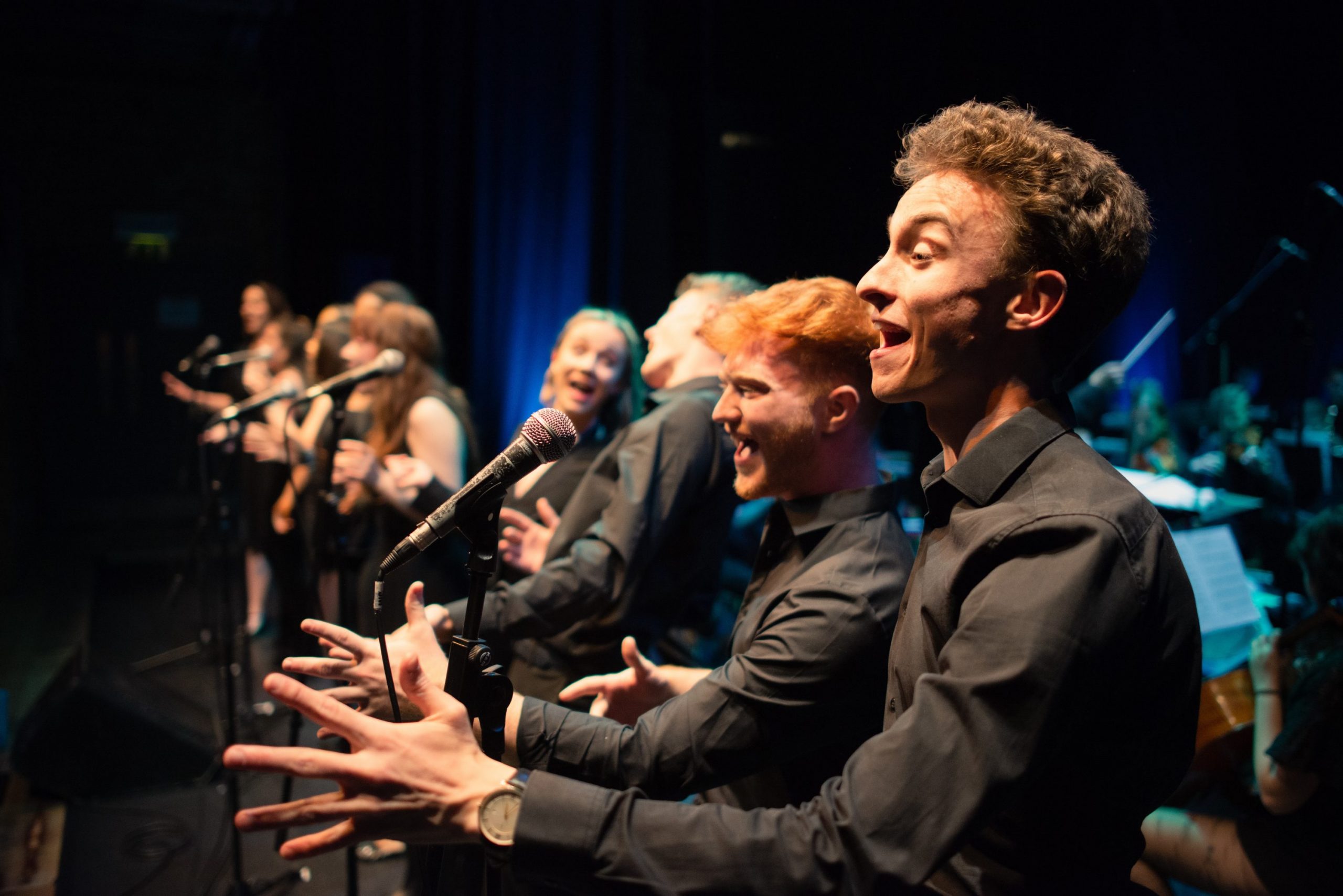
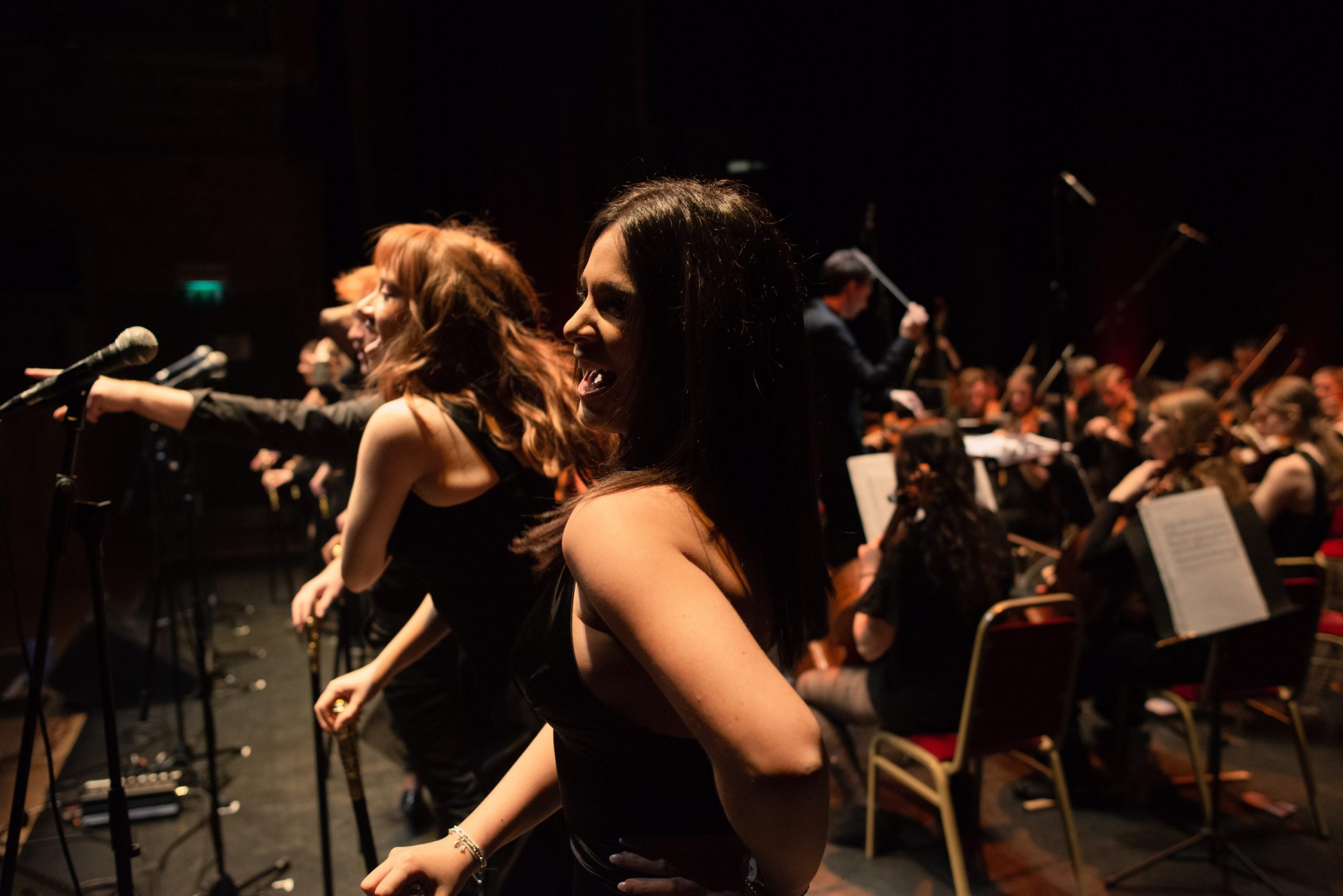
Broadway & Beyond! at Cambridge Junction June 2022
A collaboration between Cambridge University Sinfonia, the University Musical Theatre Society and members of the University Jazz Orchestra, conducted by Jess Hoskins.
“It was a real thrill to bring together so many talented performers from different parts of Cambridge’s musical scene.” Jess Hoskins
The effects are most pronounced in children, because younger brains are more adaptive to the structural changes caused by repeated musical activity, but research has shown that this process does continue throughout our lives, and even into old age. In any case, says Harrison, “students at undergrad age are definitely still young enough to be experiencing some kind of benefit”.
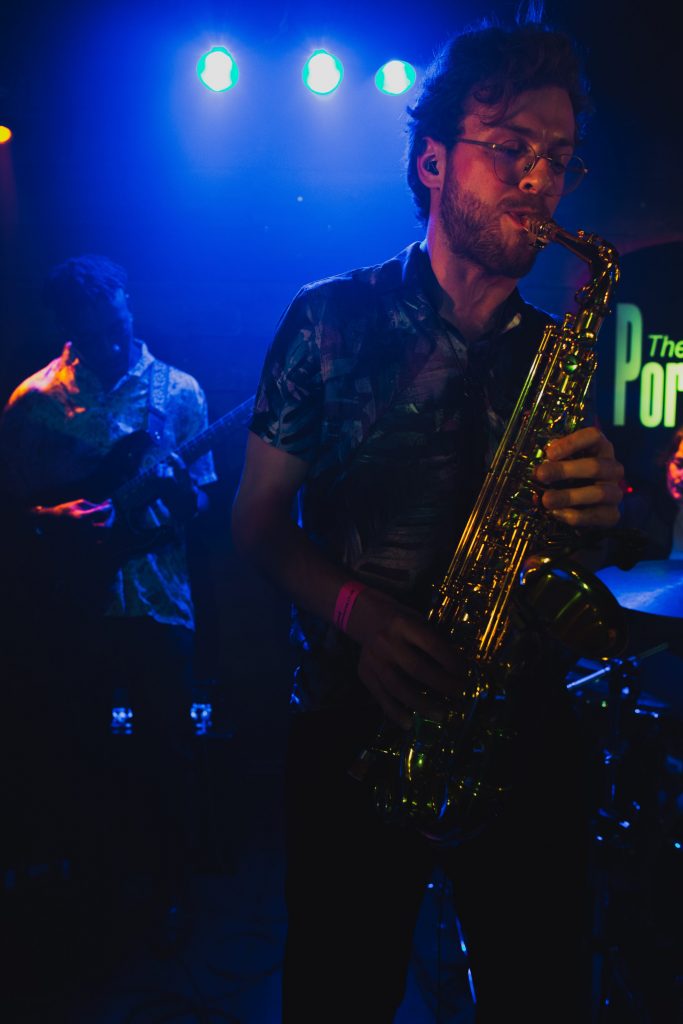
Not that we should be getting too hung up on this particular potential impact of music on our lives, Harrison is keen to add: “There are other useful benefits to music in its own sense. We shouldn’t have to rely on justifying it through the claim that it’s going to make us better at other things. There should be something more integral about it.”
Fairclough is of the same mind. By facilitating a wider uptake of music at Cambridge, among both students with prior musical experience and those with none at all, he believes the CMP is helping to ensure that the full human experience is being nurtured at the University.
“We are incredibly proud of the many world-class musicians who launch their careers at Cambridge, but you don’t need to be operating at the highest level in order to get full value out of musical development, or indeed any kind of performance,” he explains. “This is about a rounded education and students discovering passions that will be with them throughout their lives.”


